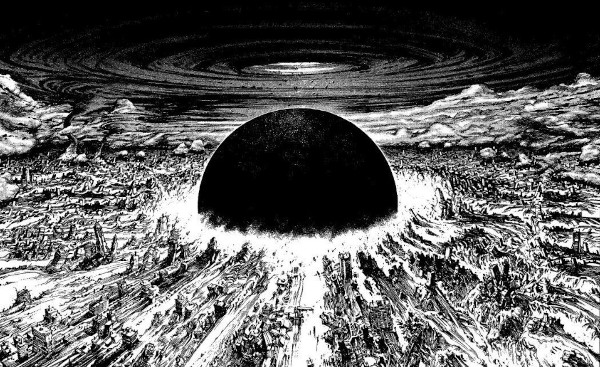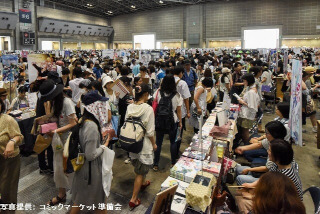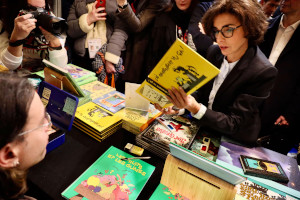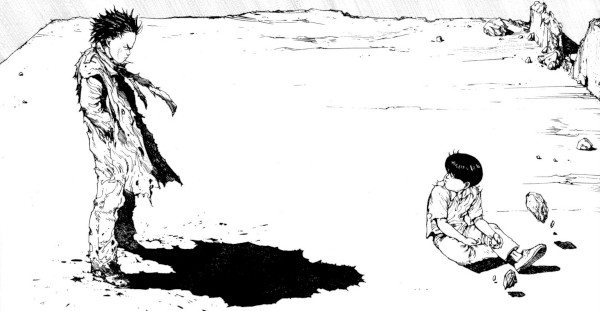
Above: library problems. Photo: Christine Ro (via BBC web site)
I recently wrote about ransomware and paid some attention to the British Library's current problem with this scourge. Well, a BBC article (Why some cyber-attacks hit harder than others) returns to the scene and covers the continuing issues and costs being borne. It's a sorry state of affairs. Looks like people are having to order books with paper forms and the digital media is still offline.
The Russian hacker group Rhysida claimed responsibility, and demanded a ransom of 20 bitcoin (equivalent to £600,000 at the time). After the British Library refused to pay up, and following an online auction of stolen data, the hackers leaked the nearly 600 GB of private information on the dark web.
Of course, Russia. The country has long been a center of criminal "hacking", state sponsored and private enterprise. Russian authorities look the other way as long as these groups don't attack Russia itself; maybe the state will co-opt or sponsor the activity. China is another major offender. The New York Times via the archive site:
Leaked Files Show the Secret World of China’s Hackers for Hire
The Chinese government’s use of private contractors to hack on its behalf borrows from the tactics of Iran and Russia, which for years have turned to nongovernmental entities to go after commercial and official targets. Although the scattershot approach to state espionage can be more effective, it has also proved harder to control. Some Chinese contractors have used malware to extort ransoms from private companies, even while working for China’s spy agency.
The problem we have is that computer and network security is hard. As well as the actual "technical" mitigations we can use (e.g. spam filters, firewalls), people themselves are usually a weak link. Anyone can be misdirected or scammed, even "experts". And almost everything is connected to the internet today, including everything that keeps civilisation actually "civilised" and people alive. Let's hope things don't get worse. And to be clear, I don't think ransoms should be paid because it just encourages these attacks.

Above: Akira - The bomb

Above: Comiket Tokyo, a huge Japanese comic fair held
multiple times a year.
Comics are still a big industry and the largest in the world is in Japan, followed by France and the USA. Japan has a long history with comics (Manga) and the market there is huge with lots of physical comic books sold and massive Manga shows. I've been watching the Cartoonist Kayfabe YouTube channel and my eyes have been opened to just how big comics are over there.

France is the second largest market for comic books (called "Bande Dessinée" or "BD"). The Guardian have a decent article online about the large comic convention held in Angoulême, France, every year:
France’s comic-book tradition is hitting new heights.
Left: At the Angoulême comics fair. Photo credit: Yohan Bonnet/AFP/Getty Images in The Guardian
Like the Japanese, the French do comics differently to us in the UK. Whereas the UK public has mostly seen "comics" as a form of entertainment for children, the French have seen comics as an art form and, as such, given them much more respect. The gap in perception has narrowed over the past two decades but I suspect it is still there. When I first looked at French comics the difference in the culture was like night and day. In the 1980's I started to read BD by the likes of Moebius, Bilal and Druillet: the French magazine Métal Hurlant was seminal at this time (and its American cousin Heavy Metal). Manga has made big inroads to the French market over the past few years: over half the market according to The Guardian article.
Right: Métal Hurlant no.8. Cover (detail) by Jean-Michel Nicollet.
With manga, I certainly looked at it back in the day (mid-80's) but I think this was just before of the good sort was available.
I just couldn't get past the way faces and eyes were drawn, or the often childish looking characters. Looking back now, I know I jumped to
entirely wrong conclusions, but with so many other great comics coming online to me at the time, I never found time to take another
look.
One of the best known Japanese comics, and perhaps the biggest hit of them all, is Katsuhiro Otomo's Akira, first published in Japan in 1982 with a first edition in English (Marvel's Epic line) in 1988. To many, this was the book that completely changed their perception of manga.
I might have glanced at Akira years ago but it would have been a superficial look. The guys on the Kayfabe channel are massive fans of Otomo and have been going through his comics and paying serious and deserved attention to their quality. It's been enough to have me taking a proper look. I've been lucky that my library (Edinburgh Central) has a fairly decent selection of comics and graphics novels so, when I saw they had the first few Akira volumes on the shelf, I knew what I had to do.
I've now read volumes one and two, and have three and four out on loan to read. Each is a thick black and white book but not heavy going in any way and the story moves along briskly. It's set in a near future "Neo-Tokyo", rebuilt a few decades after a World War and after massive devastation caused by a "new type" of bomb dropped at its center (see top image). A cyber-punk type future we've seen a lot more of now but here is a well paced story, fresh and well written, with great art. Otomo excels at detailed buildings and backgrounds, machines and action.
The comic reads surprisingly well and looks beautiful too: I am ashamed I took so long to pick it up but would recommend it to anyone.
Below: A panel from Akira. © Katsuhiro Otomo.

My tablet has taken to telling me something I am painfully aware of. The Economist android app crashes. A lot. In fact, it crashed over ten times for me at lunchtime yesterday. Given that it is also very slow, it takes a long time to start it up and get to a point I can attempt to read something again (it also loses the current article). It might crash again before I even get to the article again, if I can find it (it sometimes rearranges the home page and hides stuff). This is the way it is every day now.
I like The Economist magazine in general and have been a subscriber for many years now. I still find the writing good and explanations of current affairs and business excellent, even if I am a bit less aligned with it on some issues than I used to be. However, given the problems reading it, I will not extend my subscription again later this year.
I am also far from the only one having a problem. If you head over to the Google Play Store and look up the Economist App, you will see many people saying very similar things. This needs to be addressed or people will stop buying it. Fundamentally, what do we have here? A collection of text and images on pages wrapped in a "magazine". How hard is this? It is a solved problem.
I read on a Samsung Galaxy Tab A, from 2018. It has 3 GB RAM and 32GB storage. I use it only for the Economist app now. I see no reason why the Economist app should not work on this. If they really need to stretch the limits of what this tablet supports (but why?), give us a "lite" version. I refuse to buy another tablet just to read a "magazine".
I have tried a factory reset of the tablet. Things improved for a few days but started getting bad again soon after.
Here are some of the things wrong :
- The app is very slow and often unresponsive.
It is hard to tell if you've "clicked" the link and have to retry a lot. Finally, after a 10 second wait, maybe it will work. - The app crashes a lot (see above).
- The app "resets" itself to the home screen.
It rarely remembers your place in an article so you have to find it yourself, which is slow. - The downloaded issue has the same problems.
I've stopped trying to go through the "weekly" edition because it is even slower to get into. Even having supposedly "downloaded" it, you would not know. Everything behaves the same and a constant appearance of needing to download or refresh content. It's not just the ads.
- The "weekly" page usually shows me the wrong (previous) week. Selecting "Browse Editions" might refresh (slowly) and show all the available editions but does not let me select the new edition: it shows me the previous one again.
So, I have just about had enough. My subscription is good until the autumn but I will not pay money again for this horrible, frustrating experience. I will call their help center and let them know. I'd like my money back.

An Update
I've just done another factory reset, reinstalled the app from thePlay Store and logged in. I used it at lunchtime and, although the app was a bit slow and unresponsive to "clicks", it behaved better. It didn't crash once, which is the most important thing to me. I actually managed to read a few articles and not feel angry or frustrated at the end of my lunchtime. I'll see how it goes for the next few days.



